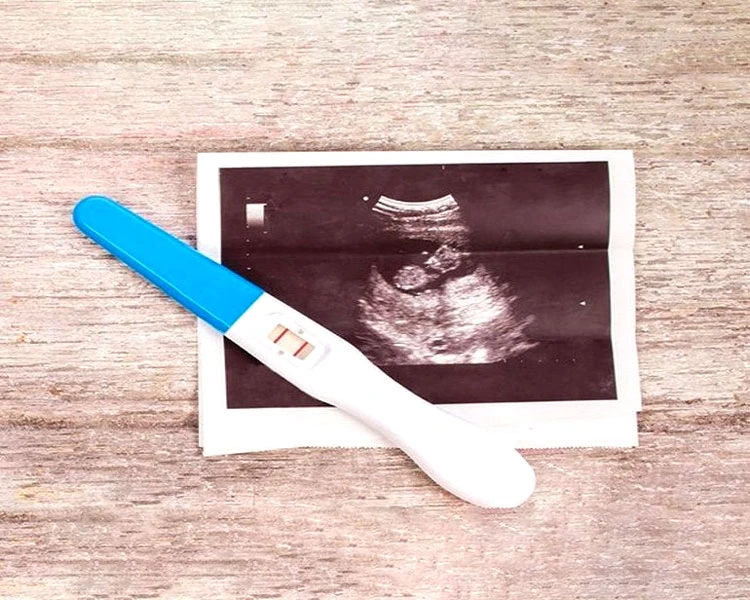How to Prevent Miscarriage? - 20 Things to Reduce Risk of Pregnancy Loss
Fertility Treatment
Miscarriage means the sudden loss of an embryo in the first three months of the pregnancy. The unexpected abortion comes with cramps, fluid discharge, pain in the back, dizziness, and abnormal bleeding. Taking parental tests, quitting unhealthy habits, and having vitamins and hormonal medications before and during the pregnancy might prevent miscarriage in the first month.
Miscarriage, or spontaneous abortion, is a common issue among pregnant women and accounts for about 10% of annual pregnancies. Miscarriage happens due to various factors, but its cause usually remains unknown to the patient and doctor. Therefore, it is hard to prevent unwanted abortions before the start of pregnancy. In cases where the cause of miscarriage is identified, treating the underlying problem can prevent miscarriage in the next pregnancy. If you want to know more about the causes of female infertility, read this article.
If you are a mother-to-be and wonder how to prevent miscarriage in the first trimester, this article can be helpful for you. Read the following to know more about the tips and natural home remedies to prevent miscarriage, its signs and symptoms, and factors that increase its risk.

How to Prevent Miscarriage?
The best way to prevent miscarriage is to take the necessary tests and health measures before the beginning of pregnancy. You can minimize the risk of miscarriage by considering the following.
- Get regular check-ups
- Take complete STD tests
- Get a pelvic examination
- Take a complete blood count (CBC) test
- Take necessary vaccines
- Take folic acid and essential multivitamins
- Take vitamin D
- Drink water and avoid caffeine and alcohol
- Seek treatment for certain diseases (if you have one)
- Control and reduce your stress
- Keep your progesterone at a healthy level
- Take progestogen medications and shots
- Use progesterone cream
- Have a regular exercise plan
- Avoid long trips
- Avoid using herbal medicines at your discretion
- Quit Smoking
- Avoid saunas and hot tubs
- Keep your weight in a healthy range
Get regular check-ups
A gynecologist should monitor you in the first three months of pregnancy to prevent miscarriage. While studying your medical record, the doctor asks about your lifestyle and orders necessary examinations and tests. They ask you to take a blood test to determine your blood type, RH factor, and whether your body is immune against rubella and chicken pox. The results of these tests help the doctor take the necessary measurements to prevent miscarriage in the first trimester.

Take complete STD tests
Sexually transmitted diseases and problems caused by them, such as AIDS (HIV), gonorrhea, herpes, gonorrhea, and syphilis, increase the risk of miscarriage and other pregnancy complications. Therefore, taking STD tests is necessary to diagnose and treat these diseases and prevent unwanted abortions. Having safe sex throughout life prevents STDs and miscarriages in future pregnancies.
Get pelvic examination
Getting pelvic examinations in different months of pregnancy is important to lower miscarriage risks. By having this examination, the doctor can diagnose an incompetent cervix and reckon the chance of live birth. Also, the doctor performs a transvaginal ultrasound to examine the embryo’s growth and monitor its heartbeat. Ultrasound is the best way to determine the heart problems of the fetus and confirm its general health.
Take a complete blood count (CBC) test
Taking blood tests is necessary to prevent miscarriage and reduce its risk. It would help if you took a CBC before trying to conceive. A blood test can help the doctor check your blood condition, coagulation factors, and the level of HCG hormone in your blood. Sometimes, the doctor orders a blood test every week to detect uterine infection by counting the number of white blood cells (WBC).

Take necessary vaccines
If you plan to get pregnant in the future, you should inject all your vaccines on time. Taking live virus vaccines before pregnancy reduces the risk of infection and protects the fetus from congenital diseases. Refusing to take the vaccine doesn’t necessarily lead to miscarriage. Still, it can jeopardize the life of both mother and fetus, especially if the mother has a history of serious health problems. Some vaccines -such as the measles vaccine- are prepared from inactivated or attenuated live microbes, so they cannot be injected during pregnancy.
Take folic acid and essential multivitamins
Taking folic acid supplements and multivitamins before, during, and after pregnancy helps reduce the risk of miscarriage. It is usually recommended that women take 600 mg of folic acid (vitamin B9) supplement daily to prevent miscarriage. Folic acid plays a significant role in reducing the risk of congenital disabilities in the fetus.
Take vitamin D
Based on the latest findings, women with a history of miscarriage must take vitamin D to keep their fetus. Women with 30 nanograms (and more) of vitamin D in their blood have a 10% to 15% higher chance of live birth. In other words, for every 10 ng/ml of vitamin D you take, the risk of miscarriage decreases by 12%. Other vitamins to prevent miscarriage include vitamin C, E, B-3, and B6.
Drink water and avoid caffeine and alcohol
During pregnancy, drink plenty of water and fresh juice to ensure the health of yourself and your child. Moreover, refrain from sugary, caffeinated, and alcoholic beverages and have less tea and coffee during the day. Bear in mind that drinking more than two cups (200 mg) of coffee per day increases the risk of miscarriage by causing hormonal imbalance.

Seek treatment for certain diseases
To prevent miscarriage, it is necessary to identify and treat your chronic diseases. Health issues such as lupus, epilepsy, thyroid disorders (including hypothyroidism or hyperthyroidism), elevated blood pressure, diabetes, etc. increase the risk of miscarriage. Still, if you treat or manage them in time, the risk of miscarriage decreases to a great extent. It is recommended that couples with a history of hereditary and congenital diseases take relevant tests months before pregnancy.
Control and reduce your stress
One way to prevent miscarriage in the first trimester of pregnancy is by reducing stress and being calm throughout the day. According to some studies, mothers who manage their stress are 60% less prone to miscarriage than other ones. Therefore, you should avoid arguments and reduce your workload if you have a stressful job.
Keep your progesterone at a healthy level
After incompetence, cervix, and uterine prolapse, hormonal problems are major causes of miscarriage. Progesterone is the most important hormone in the mother's body during pregnancy. A balanced amount of progesterone in the blood helps prepare the endometrium for implantation and maintains the early stages of pregnancy.
A low level of progesterone prevents the growth of the fetus in the womb and causes pre-term delivery or miscarriage. The physicians usually suggest the following treatments for women with progesterone insufficiency.
- Taking progesterone medications: Progestogen medications can be used as pills, shots, and vaginal suppositories. These drugs increase the chance of successful pregnancy in women with a history of repeated miscarriage. However, so far, no investigation has proved that progesterone boosters prevent birth defects, low birth weight, or stillbirth.
- Using progesterone creams: One way to treat low progesterone and prevent miscarriage is using progesterone creams from the ovulation time to the start of menstruation. If you stop using these creams, your hormones will unbalance; therefore, you should get advice from a specialist about how to use progesterone cream and avoid using it at your discretion.
Have a regular exercise plan
Exercising before pregnancy boosts your immune system and lowers miscarriage risks. However, as soon as the pregnancy starts, you should only do light exercises and leave heavy training such as marathon running or martial arts for the after-delivery period. Not having a balanced workout schedule or playing strenuous sports during pregnancy increases the risk of miscarriage considerably.

Avoid long trips
It takes nine months (40 weeks) for the fetus to grow in the womb. At the beginning of pregnancy, especially in the first and second trimesters of pregnancy, the fetus is weak and unstable. In such a situation, going on long trips or doing heavy and tiring work can cause irreversible damage to the fetus or even lead to miscarriage.
Avoid using herbal medicines at your discretion
Some herbal medicines are useful for pregnant women but also increase the risk of miscarriage. To prevent miscarriage, you should avoid using herbs such as oregano, slippery elm, celery root, black cohosh, blue cohosh, ginger, rue, Tansy, common yarrow, sweet flag, Lovage, juniper berry, Ginseng, myrrh, Southernwood, Goldenseal, sassafras oil, parsley flower, Common motherwort, Bracken, and angelica.
Quit Smoking
Drugs and tobacco products such as cigarettes, pipes, hookah, and gum are extremely harmful to the fetus. Smoking increases the risk of heart disease, cancer, high blood pressure, lung disorders, and stroke in pregnant mothers. Long-term smoking or exposure to second-hand smoke during pregnancy increases the possibility of infertility, premature birth, or low birth weight. Although no studies have examined the role of marijuana on the human offspring, animal studies have shown that using marijuana during pregnancy increases the risk of pregnancy loss.
Avoid saunas and hot tubs
To prevent miscarriage, you should only bathe with lukewarm water and avoid a hot tub or sauna. Hot water and too much steam disrupts the development of the fetus's nerves and increases the risk of miscarriage.
Keep your weight in a healthy range
Both being overweight and underweight impacts pregnancy. A balanced BMI (between 18.5 and 24.9) helps you have a low-risk pregnancy and give birth to a healthy baby. Since a high BMI increases the risk of miscarriage, it is necessary to maintain a balanced weight before trying to conceive.

Natural Home Remedies to Prevent Miscarriage
In addition to medicines, natural home remedies also reduce the risk of miscarriage. You can prevent unwanted abortion by reducing your bathing time, eating healthy food, maintaining good hygiene, and taking supplements. Old healing methods -like cupping and bloodletting- are harmful to the baby and should be avoided in all stages of pregnancy. Some people believe that if pregnant mothers wear healing crystals such as green agate, pearl, ruby, and emerald, they won’t miscarry.
What Foods Help Prevent Miscarriage?
Nutrient-rich foods prevent miscarriage, keep the uterus and ovaries healthy, and prepare your body for pregnancy and delivery. Doctors suggest the following food and drinks before and during pregnancy.
- Fresh vegetables (especially dark, leafy ones) and fruits
- Fiber-rich foods balance your hormones, regulate your blood sugar, and digest better
- Beans and whole grains
- Organic vegetables
- Whole and healthy fats
- Dairy products
- Plant milk such as almond, coconut, and rice milk (if you are allergic to dairy products)
- Lamb barbecue
- Healthy bread, including oat and flax bread.
- Roasted seeds as a snack
- Carrots, beets, and apples, as well as their jam, strengthen your uterus
- Cold-water fish
What Foods May Cause Miscarriage?
- Leftover meat, foods that cause bloating, canned foods, and spicy dishes
- Soy and soy milk they have high levels of estrogen and cause hormonal imbalance
- Dairy products containing artificial hormones and antibiotics as they cause an increase in estrogen in your body
- Floury baps
- Noodles, pasta and lasagna
- Foods that are grown with chemical pesticides and insecticides
Best Sleeping Position to Avoid Miscarriage
Sleeping on the back increases the risk of stillbirth; therefore, doctors recommend sleeping on the sides from the second trimester of pregnancy. According to studies, pregnant women who sleep on their backs are 5.8% less prone to miscarriage after week 28 of pregnancy. Also, sleeping on the back increases the risk of unwanted abortion at the end of pregnancy.
The best sleeping position to avoid miscarriage is sleeping on the left side. This position increases your blood circulation, ensuring that your fetus receives enough oxygen while you take a rest. However, be careful not to roll fast while you are asleep. Doing so, place two pillows around yourself or sleep in a tight place where it is hard to roll.

Reasons for Miscarriage after the First Trimester
The chance of miscarriage after the first trimester of pregnancy is less than %10. In general, miscarriage after week 13 of pregnancy usually occurs due to genetic and chromosomal abnormalities. Such problems happen because of a hereditary issue or infection of the uterus and cervix.
One of the main miscarriage causes after the first trimester of pregnancy is the incompetent cervix. It happens when the cervix opens up soon and causes premature birth or miscarriage. The cervix may weaken because of previous difficult births, congenital problems, prior cervical surgeries, and connective tissue disorders.
According to studies, an incompetent cervix is the main cause of miscarriage in the second trimester of pregnancy (16 to 24 weeks). Fortunately, this problem can be treated with cervical cerclage. In this operation, a part of the cervix is sutured to hold the fetus in the womb and prevent miscarriage. It should be noted that 1 out of every 500 women has an incompetent cervix.
How to Stop Miscarrying?
Is it possible to stop miscarriage when its symptoms start? Unfortunately, there is no way to stop a miscarriage once it has started. Most of the miscarriage signs are observed after the pregnancy has ended. But if you have abnormal symptoms or your doctor sees an abnormality in the fetus’s heartbeat before the miscarriage, the pregnancy can be preserved through one of the following methods:
- Avoiding sexual intercourse until after delivery
- Having bed rest until the miscarriage symptoms resolve
- Getting progesterone injection
- Getting RhoGAM injections if you are Rh-negative (have a negative blood type)
- Checking and determining the cause of bleeding
What to Do After Miscarriage?
Sadly, there is no guarantee of not having a miscarriage, and any woman might experience it. Knowing what to do after losing pregnancy helps you overcome its complications. Considering the physical and mental pressures caused by miscarriage, you’d better rest and consider the following points.
- Have healthy foods, like chicken breast, lentil soup, dark chocolate, spinach omelet, and roasted beef
- Do not have foods that irritate your bowel
- Take necessary medications such as antibiotics and painkillers
- Stay positive
- Avoid vaginal intercourse
- Avoid tampons and menstrual cups
- Do light exercises as soon as you feel better

Fertility Treatment in Iran
Miscarriage is an emergency condition and requires immediate medical treatment. However, if you have had a miscarriage more than once, you should get fertility treatment before trying to get pregnant again. Iran is home to the best fertility specialists in the world who are experienced in treating repeated miscarriages and IVF failure. Moreover, the price of Types of Infertility Treatment is quite reasonable in this country as the surgeons’ fees and laboratory costs are low.
Conclusion
To sum up what’s been told so far, miscarriage mostly happens during the first weeks of pregnancy and is accompanied by bleeding and pain. If the fetus is lost due to chromosomal abnormalities, there would be a risk of recurrent miscarriage in future pregnancies. Of course, repeated miscarriage is less common and can prevented by taking medical care and tests. Mothers can preserve their pregnancy by getting regular check-ups, quitting their unhealthy habits, and taking hormonal medications as their doctor suggests.
FAQs About How to Prevent Miscarriage?
In what week is miscarriage more common?
Miscarriage usually happens before week 12 of pregnancy. But it is also possible to miscarry during the second trimester of pregnancy.
Does bed rest prevent miscarriage?
You should avoid bed rest during pregnancy unless your doctor orders you to do it. Bed resting lowers your blood flow and may even increase the risk of spontaneous miscarriage.
How can I prevent miscarriage in the first month of pregnancy?
Prevent miscarriage in the first month of pregnancy by avoiding drinking and smoking, eating healthy, going for short daily walks, and avoiding infections during the first month of pregnancy.
What are the medicines to prevent miscarriage in the first trimester?
Mothers should take progesterone medications, folic acid, and multivitamins in the first weeks of pregnancy to prevent miscarriage. In some cases, the doctor asks the mother to take antibiotics and blood thinners as well.
What are the best herbs for pregnancy to avoid miscarriage?
Some safe herbs like ginger (to ease nausea) and raspberry leaf (for uterine support) may help during pregnancy, but not all herbs are safe. Herbs such as parsley, sage, or aloe vera should be avoided as they can trigger contractions. Always consult your doctor before using any herbal remedy to prevent miscarriage.
Which medicine can help prevent miscarriage in the first trimester?
Doctors sometimes prescribe progesterone supplements in early pregnancy, especially for women with recurrent miscarriages or hormonal imbalances. In cases of blood clotting disorders, low-dose aspirin or heparin may also be used. These medications should only be taken under medical supervision.
Can sleeping position cause miscarriage?
Sleeping flat on the back for long periods in the second and third trimester may increase risks like restricted blood flow, but it does not usually cause miscarriage in the first trimester. Experts recommend side-sleeping (especially on the left side) to improve circulation and support the pregnancy.










No reviews
Your comment